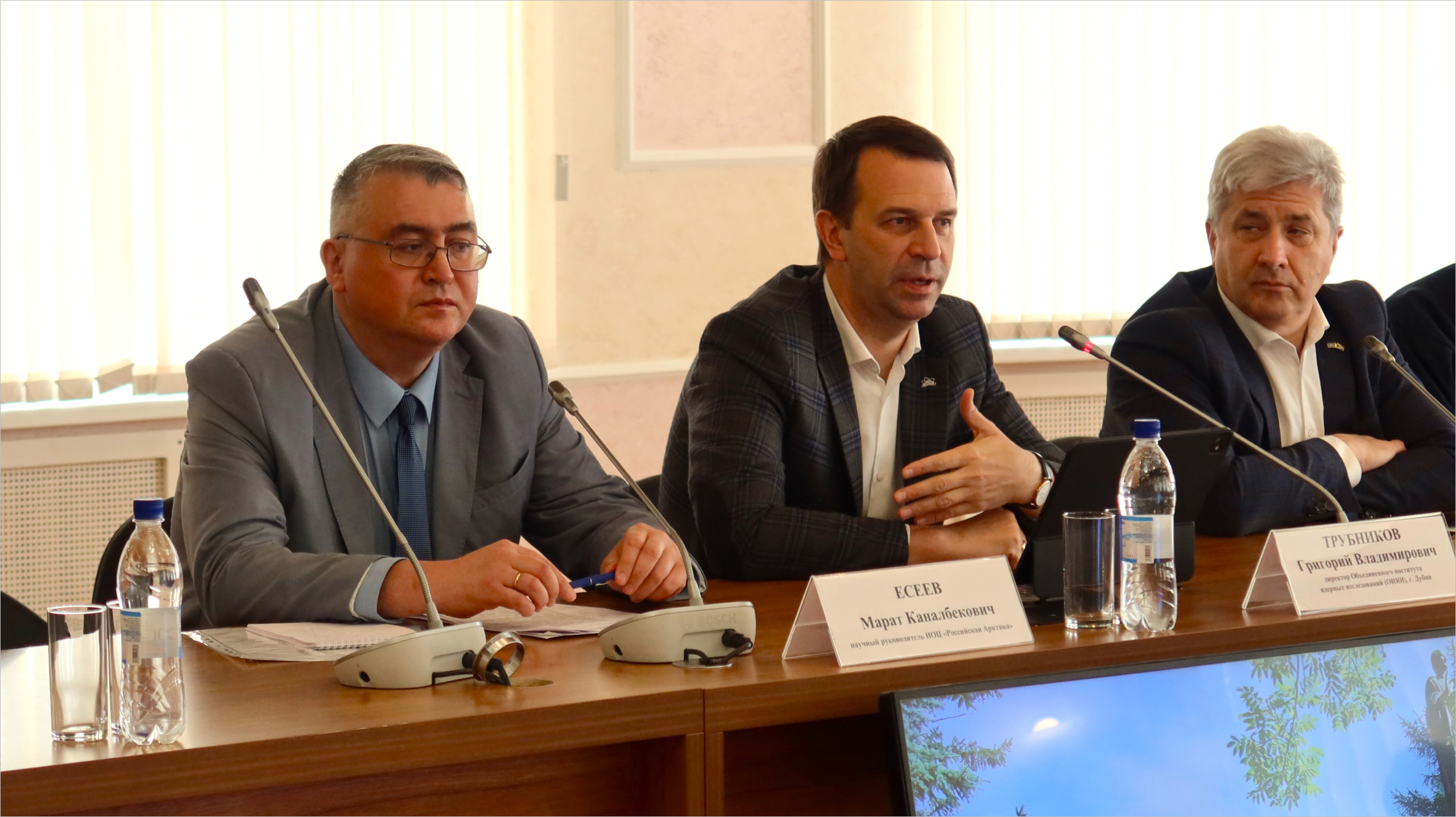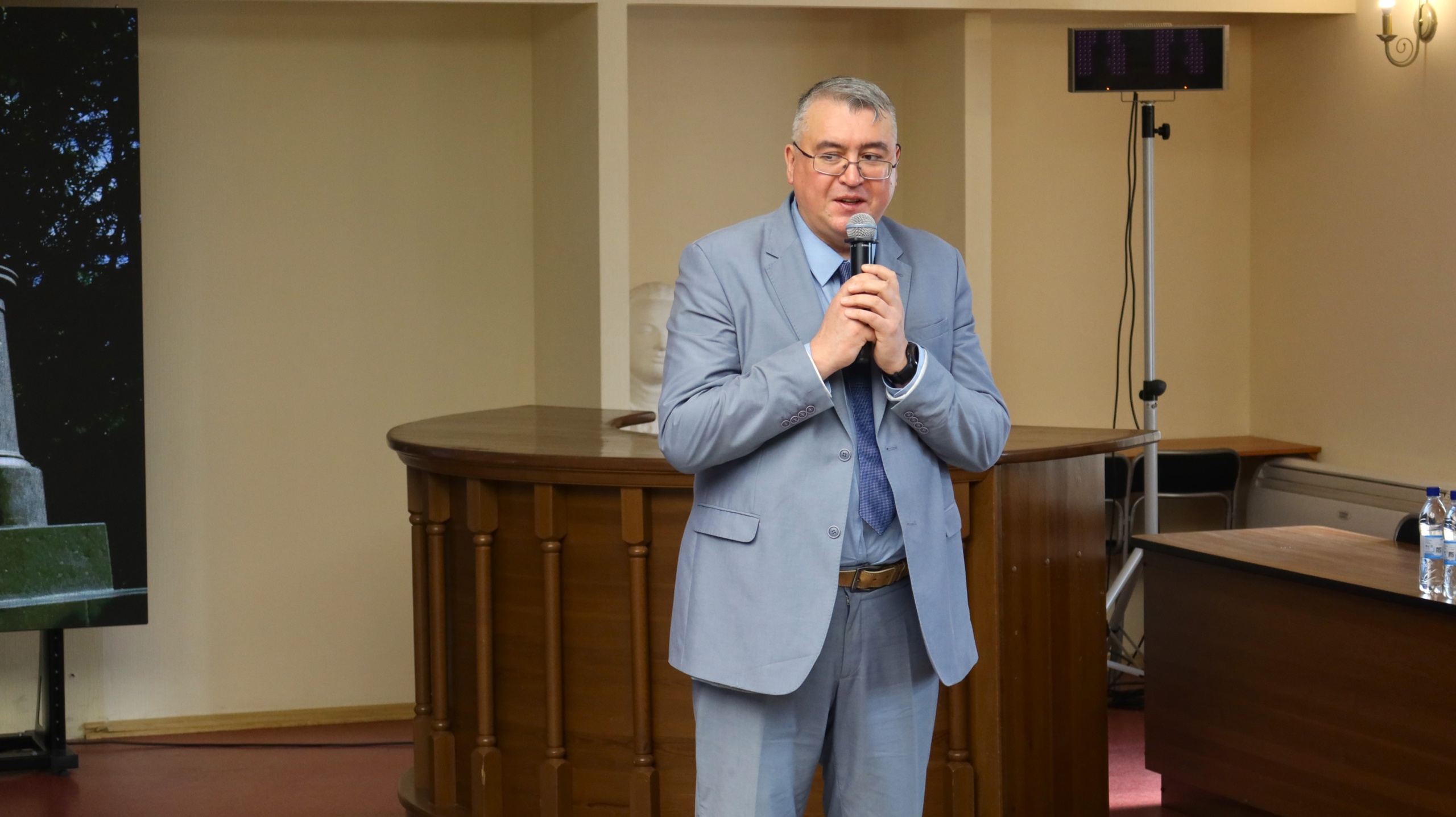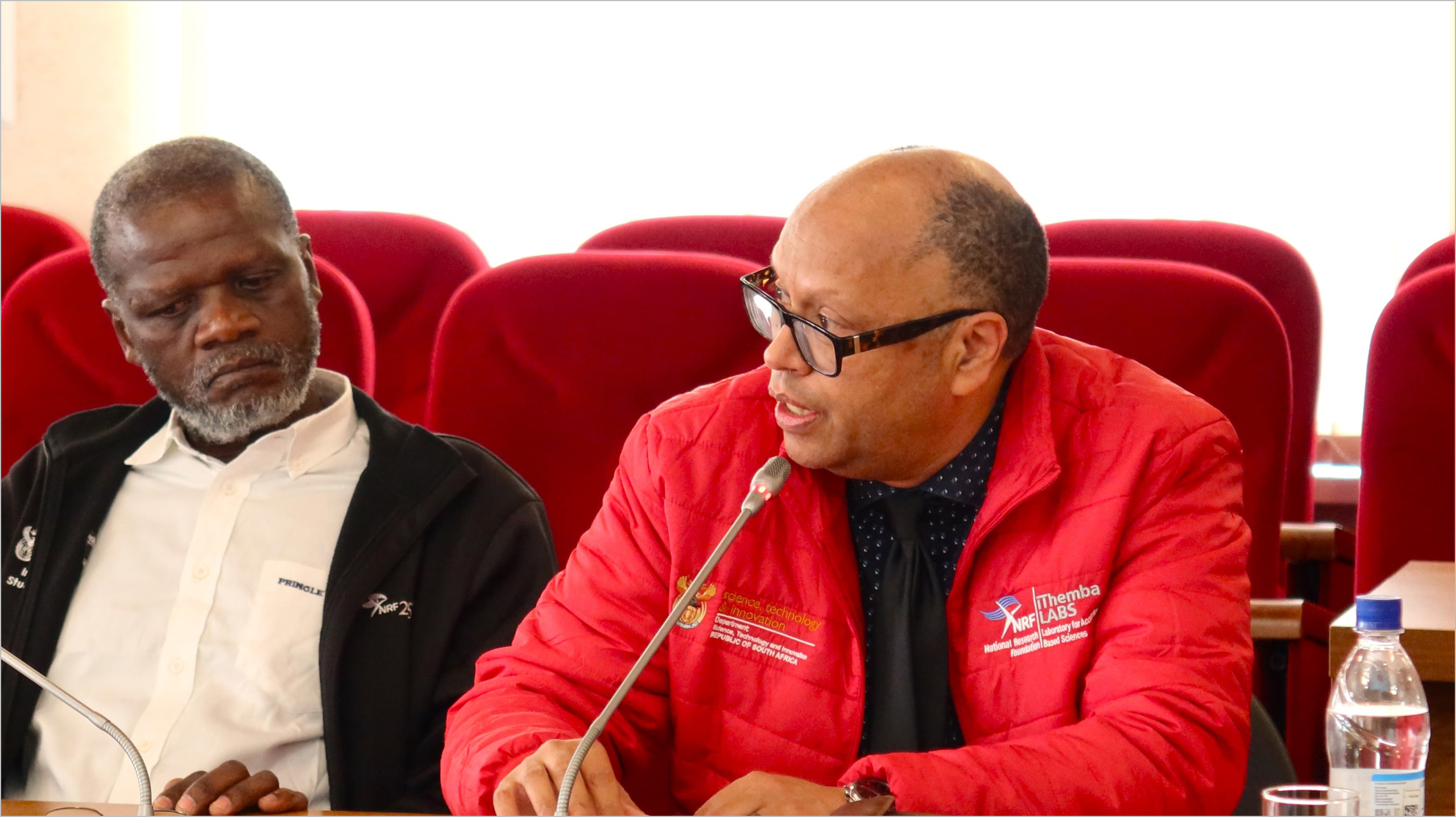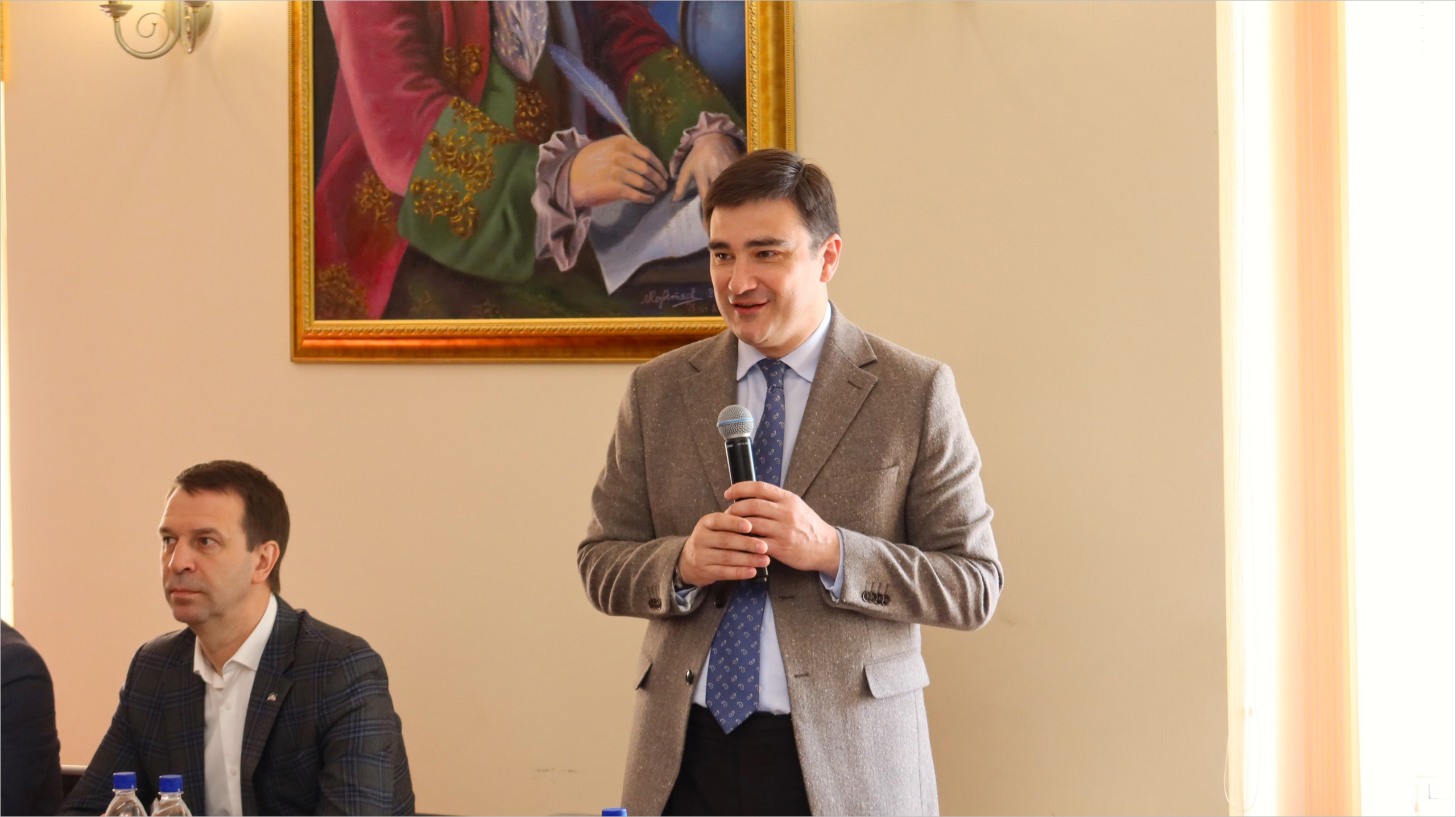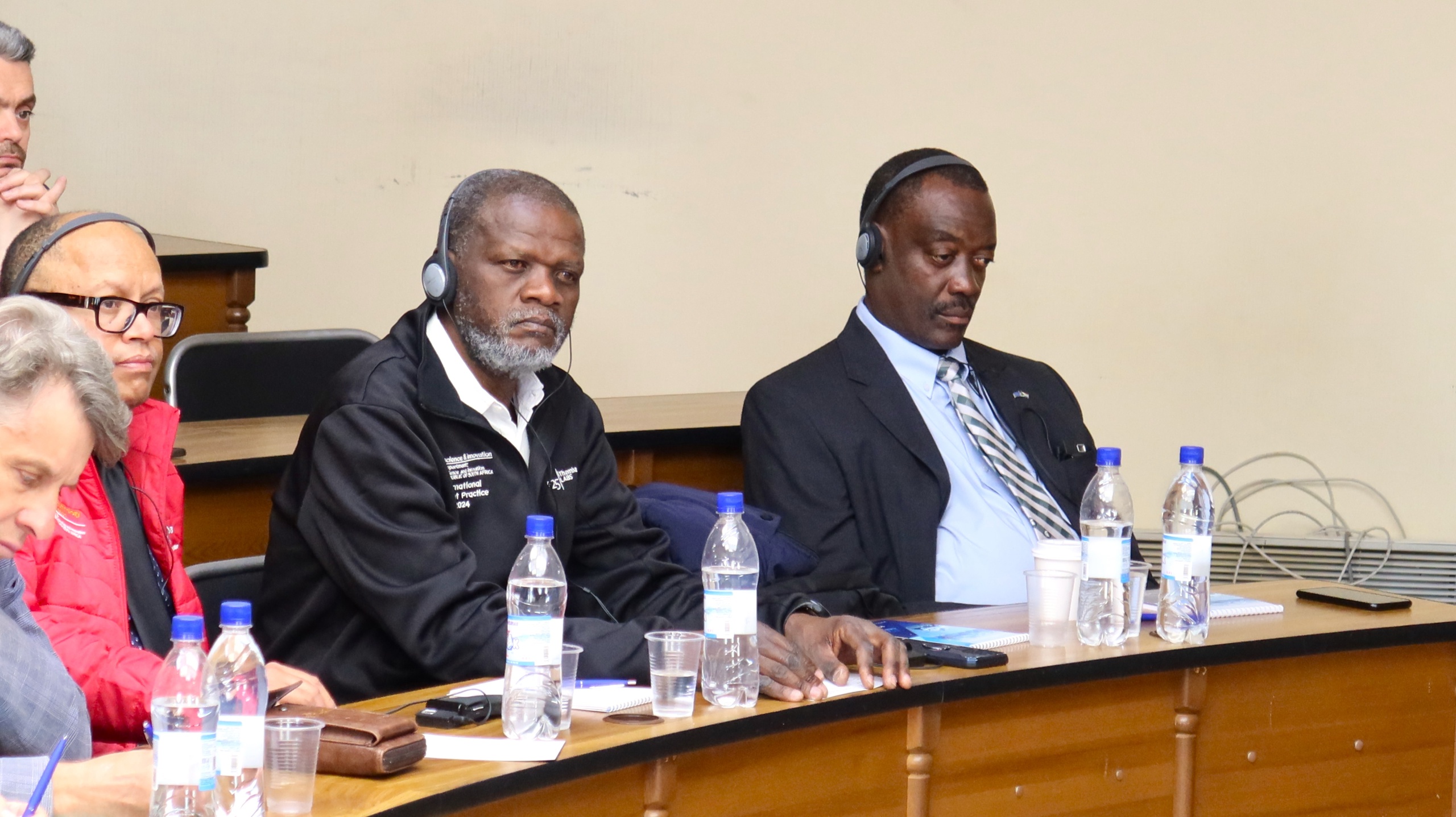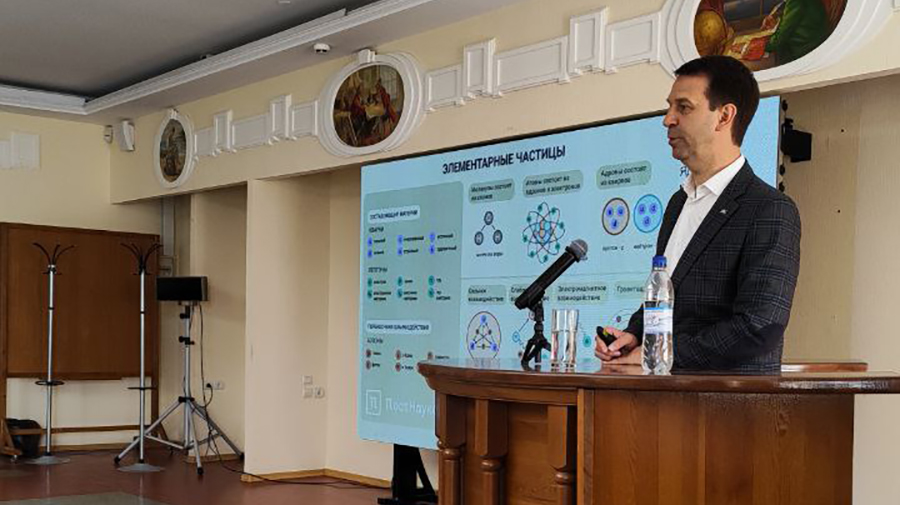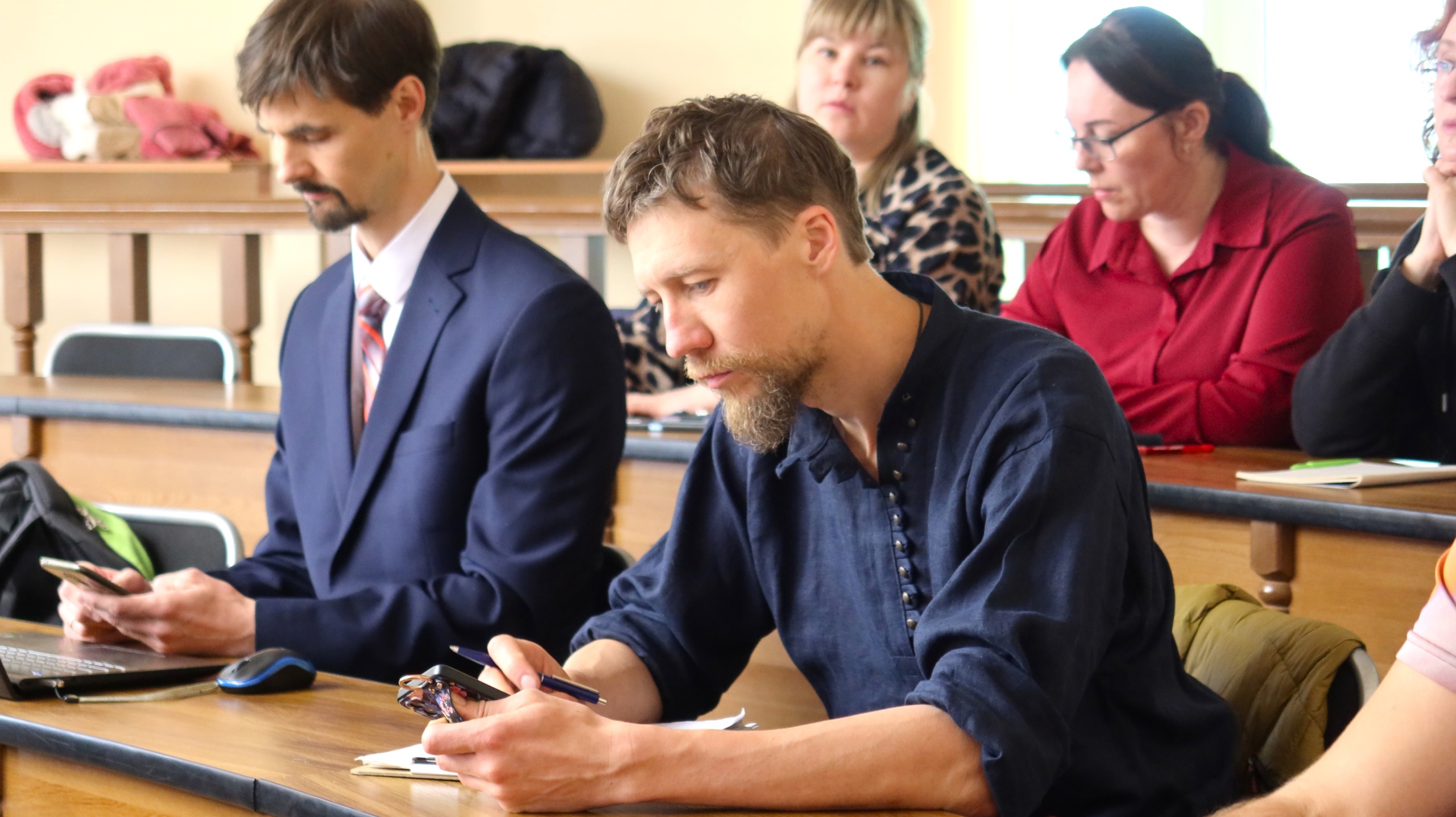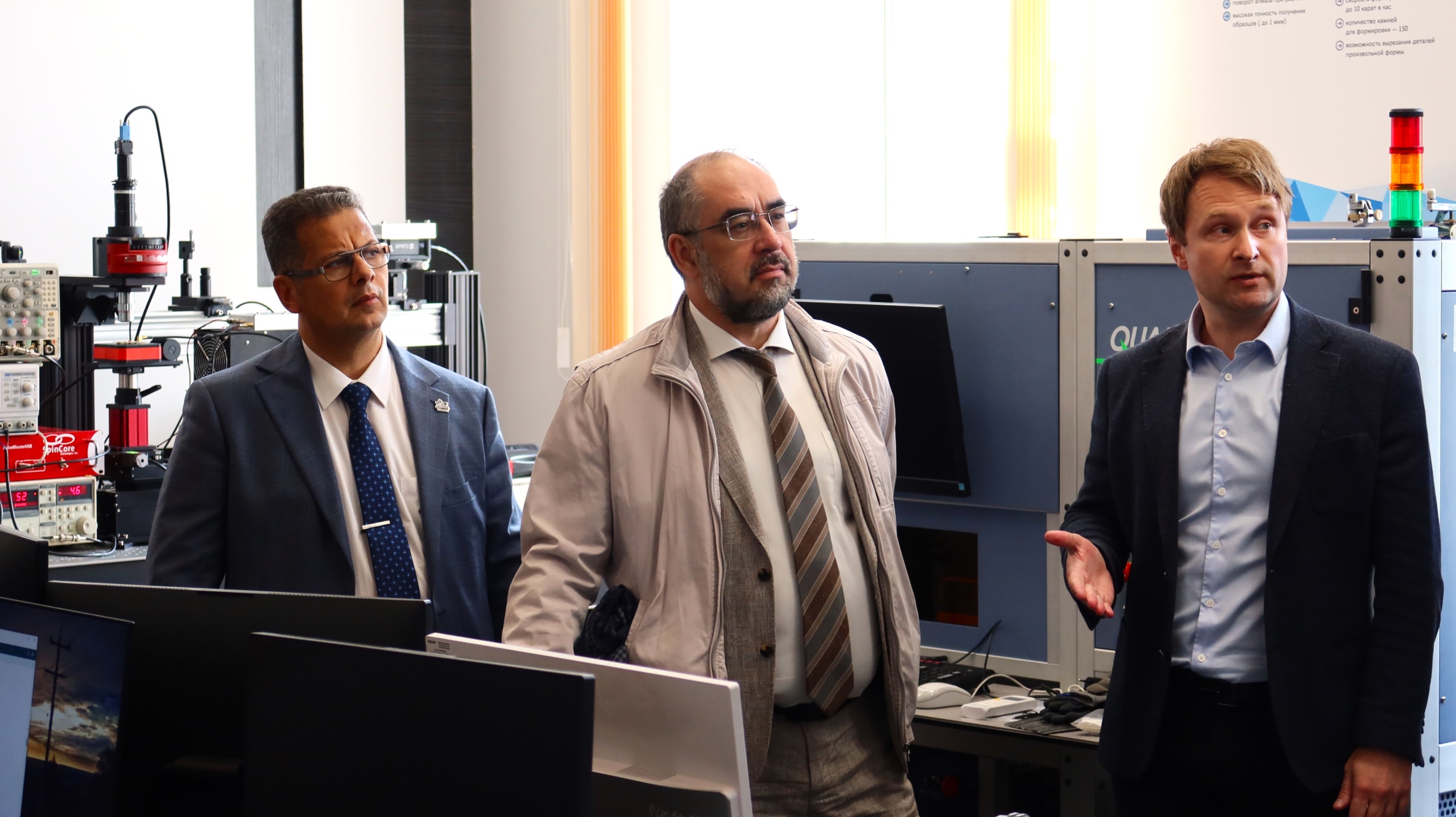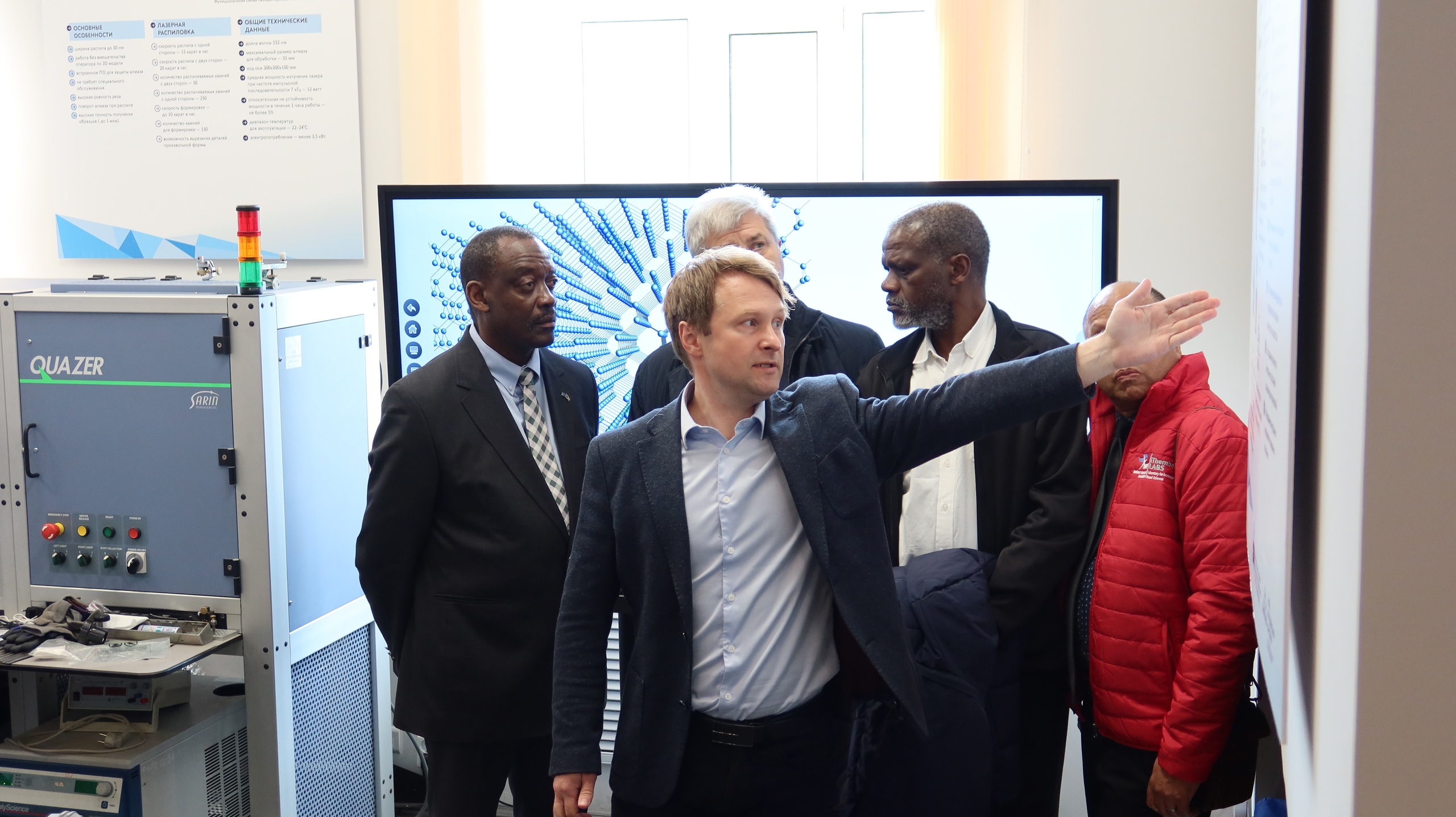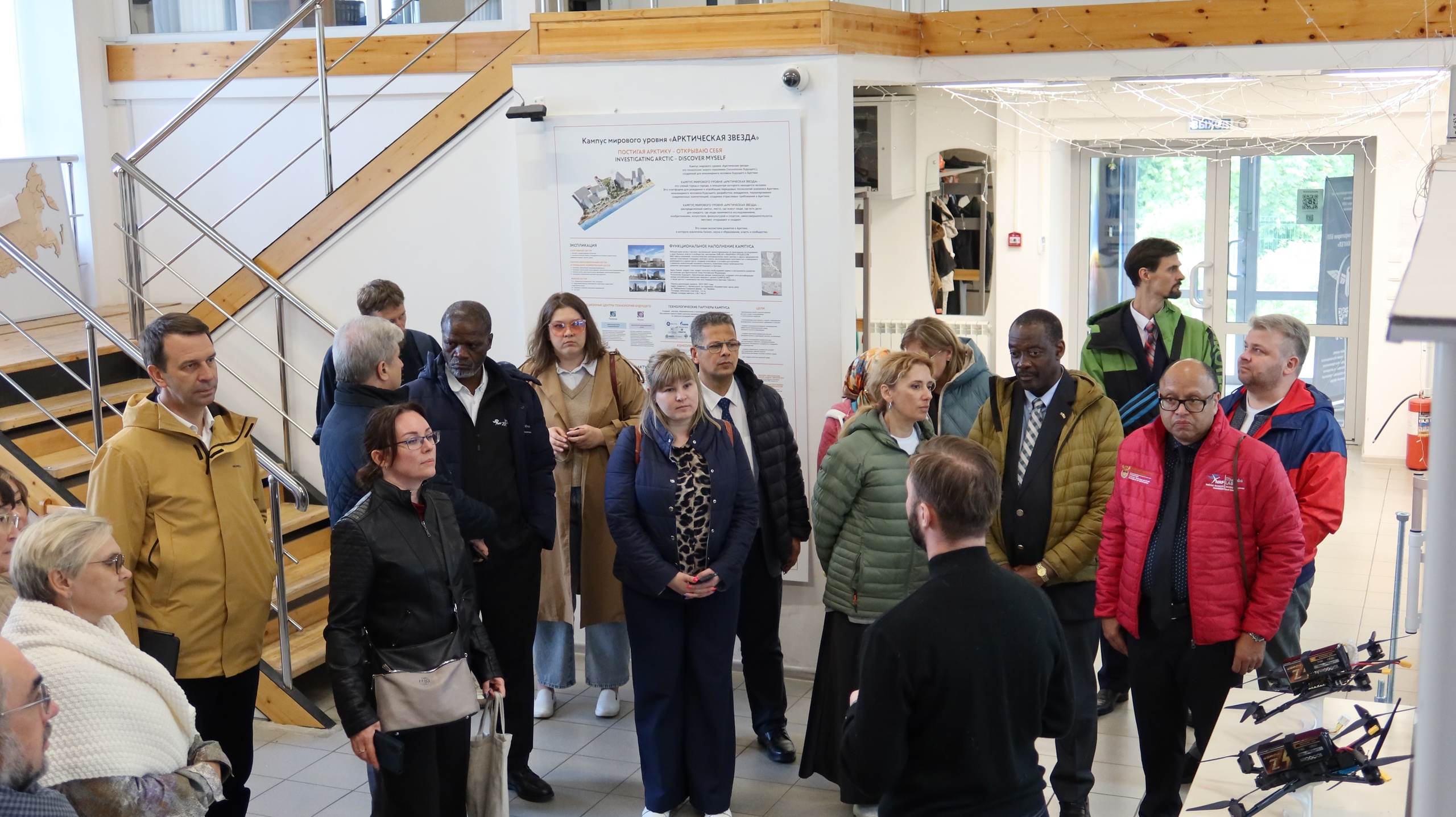Round table with heads of JINR Information Centres held in Northern Federal University
News, 26 June 2025
On 20–21 June, the Northern (Arctic) Federal University (NArFU) hosted a series of events organized by the Joint Institute for Nuclear Research. The programme of the JINR Meridians, Arctic Latitude meetings included scientific lectures and round tables dedicated to the development of international cooperation in the partner network of the JINR Information Centres (IC). In addition, participants discussed physics teaching in schools with representatives of schools, universities, and the Arkhangelsk Region’s government.
The JINR Meridians, Arctic Latitude meeting continued the initiative to hold joint scientific events at IC JINR, which started in 2021. NArFU gathered heads of Information Centres in Arkhangelsk, Vladivostok, Irkutsk, Egypt, Cape Town; representatives of Rostov-on-Don, North Ossetia, and Tomsk joined online. The NRF iThemba LABS Director arrived in Arkhangelsk together with the Information Centre heads, Victor Tshivhase and his Deputy, Coordinator for Cooperation of the Republic of South Africa with JINR Rudolph Nchodu. Their visit continued the programme of the Days of South Africa at JINR, which began on 16 June in Dubna.
Acting Rector of the Northern (Arctic) Federal University Mikhail Danilov opened the plenary session. He called the JINR Meridians, Arctic Latitude an excellent example of international cooperation and thanked the Joint Institute for the educational work carried out for students, postgraduates, and schoolchildren of the Arkhangelsk Region.
In response, JINR Director, NArFU Honorary Doctor Grigory Trubnikov expressed gratitude to the university’s management and employees for organizing the meeting. “The purpose of such events is to continue engaging students and schoolchildren in big science, to discuss large scientific projects, and, of course, to establish and strengthen ties between JINR Information Centres,” the Institute’s Director added.
As part of the lecture programme, Grigory Trubnikov provided an overview of the NICA Megascience Project, Director of the Research Institute of Applied Physics at Irkutsk State University (ISU, Russia) Andrey Tanaev discussed the TAIGA Gamma-Ray Observatory, and Professor Rudolph Nchodu spoke about physics studies in South Africa. The plenary session finished with a lecture by a researcher at the Laboratory of Neutron Physics at JINR Pavel Nekhoroshkov on the FLNP research in environmental assessment using biomonitoring methods.
A round table on the development of the partner network started with speeches by Grigory Trubnikov and Marat Yeseev, Scientific Director of Russian Arctic, a world-class scientific and educational centre. “Our dream of four years a got to establish information centres at the northern tip of the JINR meridian came true. We need to meet, share our best practices, discuss problems, set new goals, and develop new formats,” Grigory Trubnikov said. “We have been cooperating through the JINR Information Centre in NArFU since 2022. About 2000 schoolchildren a year take part in joint events, students participate in internships and experiments, and about 50 teachers a year improve their skills. Our students took part in the Teachers of the Future school,” Marat Yeseev continued on the active work underway at the Arkhangelsk IC.
In their speeches, heads of the JINR Information Centres, including Alexandra Reguzova (Far Eastern Federal University, FEFU), Richard Newman (iThemba LABS), Albina Daurova (North Ossetian State University, NOSU), Andrey Tanaev (ISU), and Alexey Mikheykin (Southern Federal University), discussed how joint work with the Institute fosters scientific cooperation, helps motivate schoolchildren to study science, promotes teachers’ professional development, and develops the academic mobility of students and postgraduates.
Head of the Information Centre in Sofia (Bulgaria) Dimitar Mladenov spoke about the interests of schoolchildren and teachers in Bulgaria. He stressed the importance of the prompt financing of the centres’ initiatives. New Head of the Information Centre in Cairo (Egypt) Mona Schuman shared information about the centre’s work with schoolchildren, teachers, undergraduates, and postgraduates: “Thanks to the Information Centre, we hold school and student internships at JINR, invite students to our centre for online lectures by scientists, and use the capabilities of JINR UC‘s virtual laboratory”. Mona Schuman invited the participants to gather in Cairo next time.
JINR Univercity Centre Director Dmitry Kamanin moderated the round table. “JINR Information Centres are points of contact through which we share our expertise, methods, and materials. Today’s meeting is symbolic, as we connected the southern and northern ends of the JINR meridian. And the speech by Dimitar Mladenov and Alexandra Reguzova showed the current scale of our cooperation from East to West,” Dmitry Kamanin said.
Grigory Trubnikov summarised the results of the round table: “We should develop and support all initiatives that attract students to science. I wish us all to work together, share expertise, and hold meetings. Science brings nations together”.
The next round table entitled “Problems of career guidance, school education, and teachers’ training in physics and exact sciences” began with a greeting from Minister of Science, Higher Education, and Scientific and Technological Development of the Arkhangelsk Region Alexey Aksenov. The minister detailed the region’s efforts to overcome problems in teaching natural sciences in schools and higher education institutions. The solutions include opening specialised natural science classes, improving the skills of school teachers, and increasing the number of teachers.
A UC JINR leading methodologist Pyotr Shirkov noted in his speech that through the Information Centres, the Institute can provide resources to tackle these challenges. This includes working with future physics teachers in the Teachers of the Future project.
Rudolph Nchodu spoke about his experience working with schoolchildren at the JINR Information Centre in Cape Town. Albina Daurova (JINR Information Centre in NOSU, Vladikavkaz) and Alexandra Reguzova (FEFU, Vladivostok) shared their positive experience of working with schoolchildren and teachers. These are two other regions that have inspiring experience of teaching physics in schools with the Engineers of the Future educational and methodological complex (edited by Professor Yuri Panebrattsev, JINR) and invite colleagues to use it as well, noting that physics textbooks for grades 7-9 from this complex are included in the federal list of textbooks of the Ministry of Education of the Russian Federation.
Teachers and representatives of Arkhangelsk Region universities participated in the discussion after the round table. Alexey Aksenov expressed confidence in the prospects of joint educational projects. Acting Rector of Dubna State University Andrey Denikin spoke about the development of professional retraining programmes in the university and offered to cooperate with NArFU in teaching sciences in universities.
In his final remarks on the round table on education, Grigory Trubnikov noted: “The system for selecting talented children is working well in the country, but we support our colleagues’ idea that “B students” should know physics well too. Schoolchildren become interested in science through hands-on experiences, so we are developing experimental initiatives for schoolchildren. We are improving the Engineers of the Future textbook and are fighting to make it one of the main textbook in Russian schools. We need a team to work on this. Dear teachers, I invite you to join the team. Let’s work together!”
